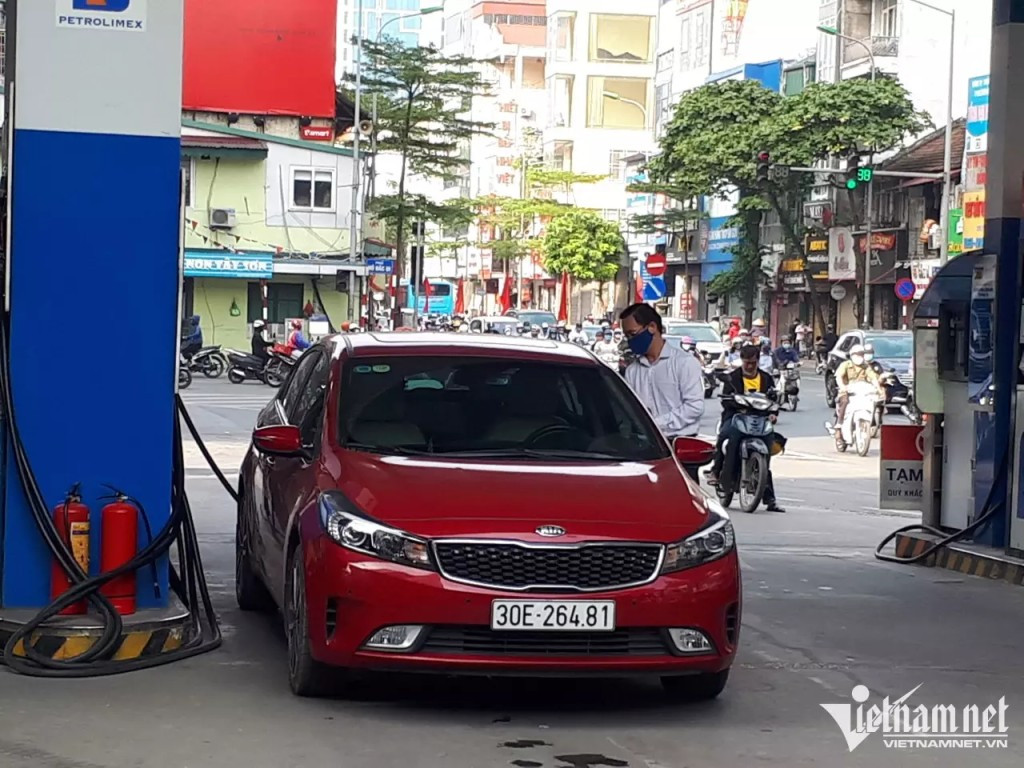
MOF has proposed a reduction of VND500-1,000 per liter in environmental protection tax on petroleum products to stabilize the domestic price amid price fluctuations.
The ministry said the tax rate on petrol in Vietnam is lower than many other countries, especially after the environment protection tax was cut according to the National Assembly Standing Committee’s Resolution No 18/2022.
In other countries, taxes account for 40-55 percent of the petrol price and 35-50 percent of diesel and mazut (the proportions are lower in some countries with large oil reserves).
In Vietnam, with the environmental protection cut lately, taxes account for 23.5 percent of E5 RON92, 24.1 percent of RON95 and 12.8 percent of mazut (administration review of June 13, 2022)
Tax adjustment is a solution to force petrol prices down. However, MOF believes this is a temporary solution which should be used in the short term, because domestic prices depend on world prices.
Other countries have amended their tax policies depending on their current conditions as follows:
Belgium reduced VAT on gas to 6 percent, applied to the period from April 1, 2022 to September 30, 2022. Croatia reduced VAT on gas from 25 percent to 13 percent. Poland also cut VAT on petrol and diesel from 23 percent to 8 percent, applied for six months, beginning February 1, 2022.
Many countries have cut luxury taxes. Australia lowered the luxury tax on fuel by 50 percent, applied from March 29 to September 28. Meanwhile, Thailand reduced the luxury tax on petrol by 3 baht from February 18 to May 20, 2022.
In addition to tax cuts, some countries applied an energy subsidy which supports businesses suffering from high energy prices and people, especially low-income earners.
According to MOF, the adjustment of tax on petrol products needs to be carefully considered to ensure the role and function of each kind of tax imposed on petroleum products.
Luxury tax
Regarding preferential import tariffs in accordance with FTA, the current tax rates are 8 percent for petrol and 0 percent for diesel (Vietnam implements its exact commitments on tax cuts). Therefore, MOF believes that Vietnam should not adjust FTA tax rates on petroleum products and continue to implement the current tax cut roadmap.
As for luxury tax, MOF doesn’t support the proposal on a luxury tax cut.
Under the special consumption tax law, luxury taxes are only imposed on petrol, not on oil products. The current luxury taxes are 10 percent on petrol, 5 percent on E5 and 7 percent on E10. The law doesn’t stipulate tax reductions for goods and services subject to luxury tax.
According to MOF, petrol is a fossil fuel and non-renewable and needs to be used sparingly, and so, according to international practice, it bears a luxury tax.
A report said that luxury tax collection in the first five months of the year was VND6.503 trillion.
MOF estimates that if the oil price in the world stays at $110 per barrel until the end of the year, the luxury tax collection would be VND9.614 trillion. If so, the total tax collection in 2022 would be VND16.117 trillion.
If the oil price is $120 per barrel, the collection from petrol would be VND10.488 trillion (VND1.498 trillion a month). If so, the total luxury tax collection from petrol would be VND16.991 trillion in 2022.
The adjustment of luxury tax falls under the competence of the National Assembly. Any changes in the tax law must be submitted to the National Assembly for a decision.
In general, amended laws don’t take effect immediately. Meanwhile, petroleum prices fluctuate all the time. For that reason, MOF thinks that in the immediate time it would be better not to adjust the luxury tax on petrol.
Tran Thuy